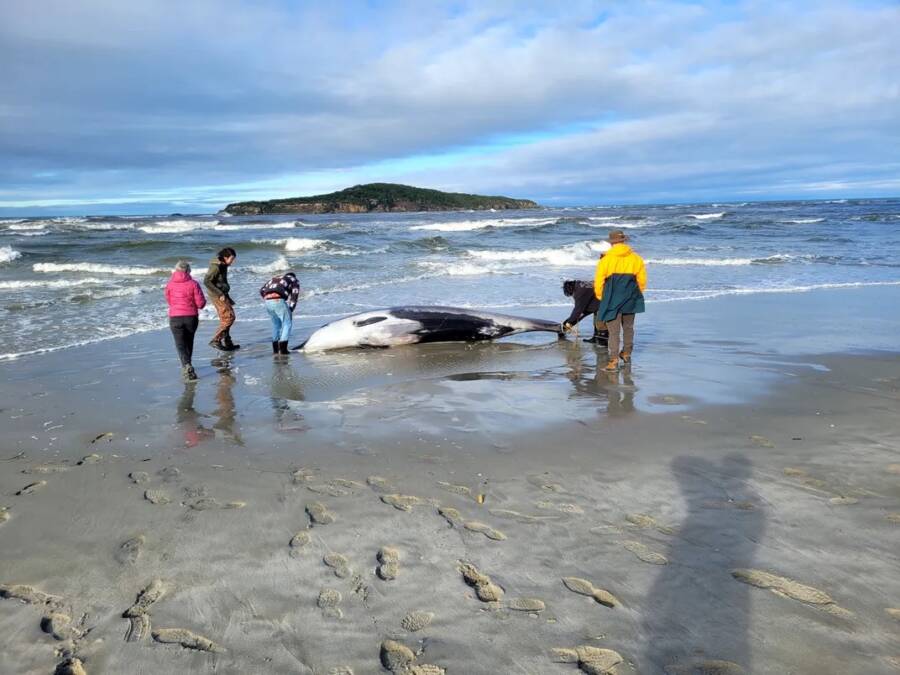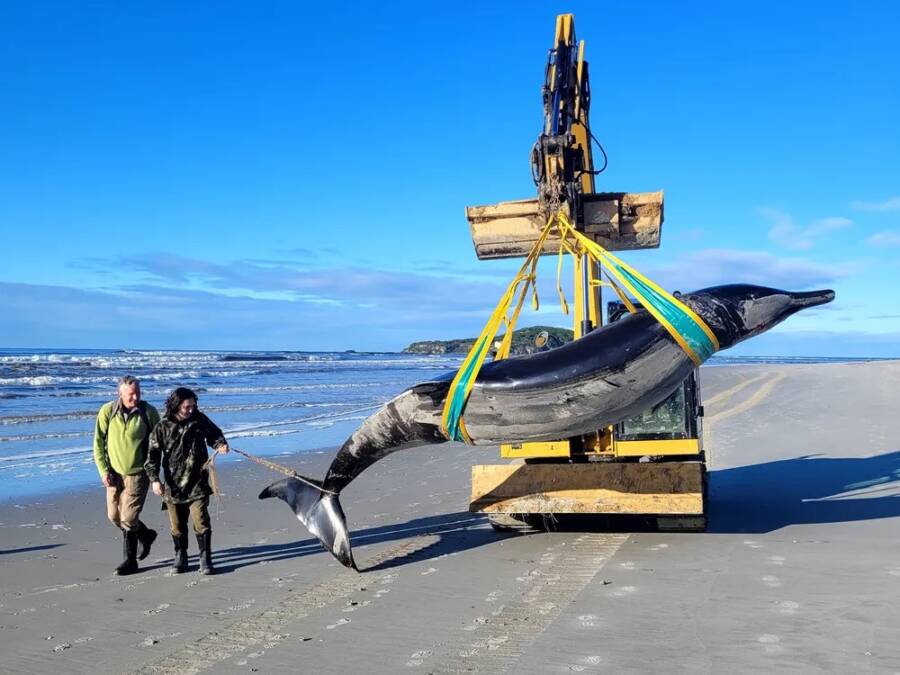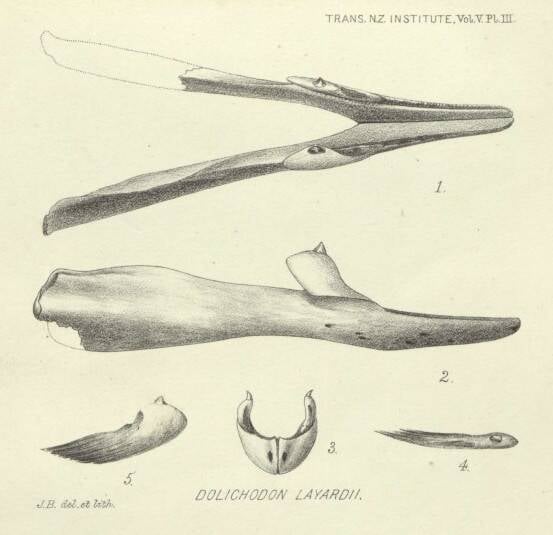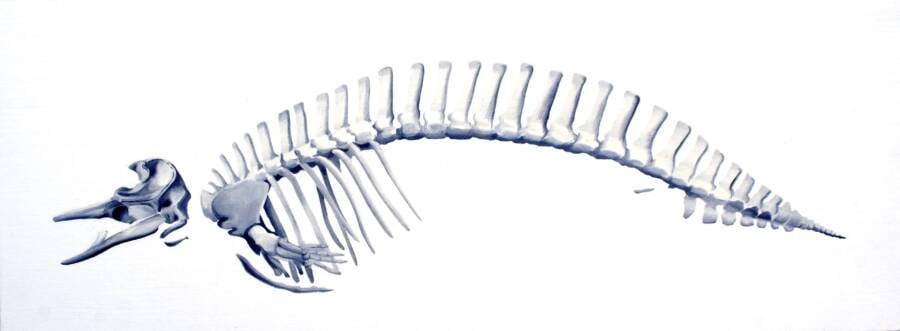The spade-toothed whale is so rare that it's never been seen alive. Now, for the first time, scientists may be able to dissect one.

New Zealand’s Department of ConservationThe beached spade-toothed whale, one of the rarest whale species on Earth.
The body of a spade-toothed whale — dubbed the “rarest whale in the world” — washed ashore on a New Zealand beach in early July. According to scientists, the whale has never been seen alive.
Until now, only six other specimens had ever been identified, but this may be the first time scientists will be able to dissect one and learn more about this elusive species.
Finding The Spade-Toothed Whale In New Zealand
On July 15, the New Zealand Department of Conservation (DOC) announced that local officials had been made aware of the whale’s presence near Taieri Mouth on July 4. Marine mammal experts from the DOC and the Te Papa museum identified the creature as an incredibly rare male spade-toothed whale.
“Spade-toothed whales are one of the most poorly known large mammalian species of modern times,” said DOC Coastal Otago Operations Manager Gabe Davies. “Since the 1800s, only 6 samples have ever been documented worldwide, and all but one of these was from New Zealand. From a scientific and conservation point of view, this is huge.”

New Zealand’s Department of ConservationDOC agents successfully transferred the whale’s body to cold storage.
Officials were made aware of the whale’s presence on the beach by a local man named Patrick Gallagher, who first noticed the whale via webcam footage of Taieri Mouth as he was prepping to go out for a surf.
At first, Gallagher wasn’t sure what he was looking at.
“You sometimes see seagulls that look like surfers and surfers that look like boats… beached dolphins that are actually logs,” he told RNZ. “I almost didn’t call it into DOC because I thought they must’ve known about it or it had been there for a while. I didn’t want to be annoying. Pretty lucky that I actually put my big kid pants on and rang it in.”
That evening, DOC ranger Jim Fyfe contacted Gallagher to ask whether the animal was still there. Gallagher told Fyfe that he lived half an hour from Taieri Mouth and could not actually see the beach, but forwarded him a link to the webcam’s live feed. Shortly after, Fyfe and fellow DOC rangers ventured to the beach to secure the specimen.
“The rarest whale on the planet was found by me sitting on my couch, having a cup of tea, dreaming about having a surf when my wee baby daughter was feeling a little bit hōha,” Gallagher remarked.
Gallagher also said he was disappointed to learn that the whale was dead by the time DOC rangers reached it.
“They’re very spiritual and majestic animals. You can’t help but feel a bit sad for its loss,” he said. “But I’m really stoked that it will contribute to our understanding of the deep blue.”
Scientists Still Know Very Little About Spade-Toothed Whales
The spade-toothed whale was first described in 1874, based on just a lower jaw and two teeth found in the Chatham Islands. The discovery of other specimens in 1950 and 1986 allowed scientists to officially confirm it as a new species.

Wikimedia CommonsIllustrations of the jawbone identified in 1874.
In 2010 and 2017, two more findings from the Bay of Plenty and Gisborne helped researchers describe the species’ color pattern for the first time. But beyond that, little is known about these elusive whales.
This latest specimen was fairly fresh, meaning scientists may be able to dissect it for the first time.
“We know very little, practically nothing” about these whales, Hannah Hendriks, marine technical advisor for the Department of Conservation, told the Associated Press. “This is going to lead to some amazing science and world-first information.”

Wikimedia CommonsAn illustration of the spade-toothed whale’s skeleton.
As part of their research, the DOC said they will be working with members of New Zealand’s Indigenous groups, who consider the whale to be a taoka, or treasure, of cultural significance.
“It is important to ensure appropriate respect for this taoka is shown through the shared journey of learning, applying mātauraka Māori as we discover more about this rare species,” said Te Rūnanga ō Ōtakou chair Nadia Wesley-Smith.
For now, genetic samples have been sent to the University of Auckland to officially confirm the whale’s species. The whale’s body, meanwhile, remains in cold storage to preserve the remains while researchers decide upon the next steps.
After reading about the world’s rarest whale that washed ashore in New Zealand, read the bizarre story of Oregon’s exploding whale. Then, learn about ambergris, the “whale vomit” often used in perfumes.





